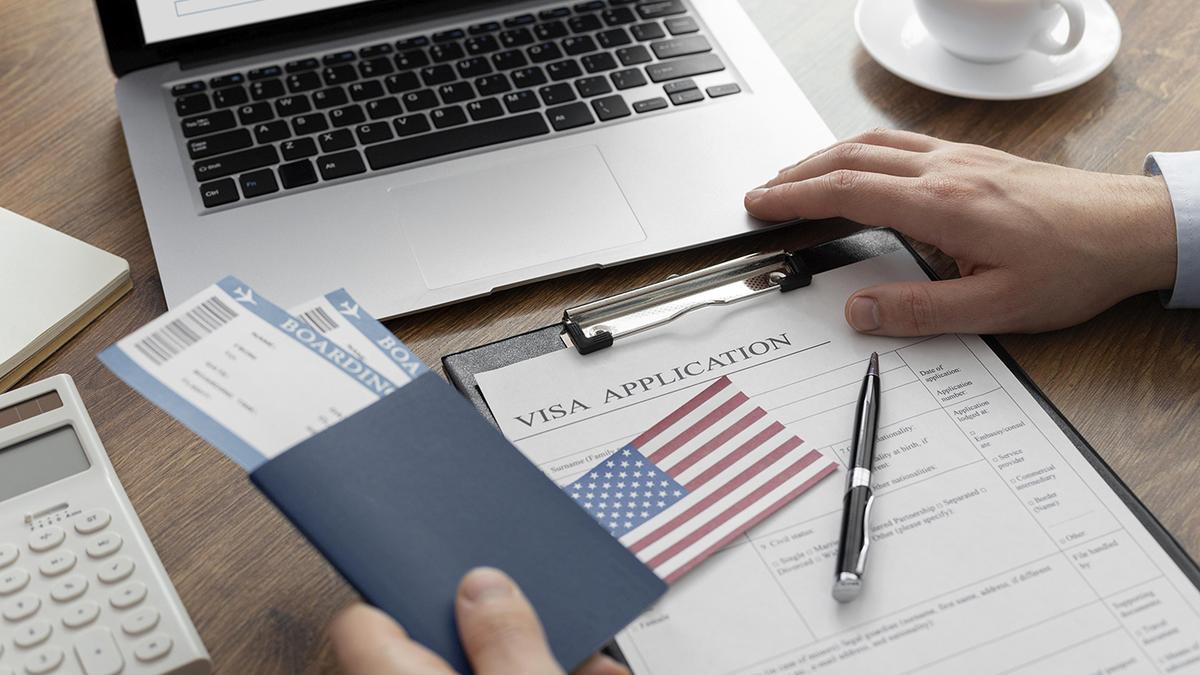In 2023 and 2024, over half a million students were denied visas.
In February 2025, the first month of the second Donald Trump administration, the number of student visas issued to Indians by the U.S. dropped by 30% compared to the same month the previous year. This decline was notably higher than the overall 4.75% decrease in student visas granted by the U.S. to all countries combined.
Moreover, the drop in student visas issued to Indians was much sharper than the decline in visas issued to Chinese, Vietnamese, and Japanese students.
This worrying statistic comes at a tumultuous time when the visas of over 1,000 international students, including Indians, across the U.S. have been terminated or revoked without much notice. According to the Associated Press, at least 1,100 students across 170 colleges across the U.S. have been affected.

Many students have filed lawsuits against the terminations. Associated Press quoted the name of at least one such Indian student, Manikanta Pasula, who was about to get a Master’s degree in computer science at Rivier University in New Hampshire. Chinmay Deore, along with four other students at public universities in Michigan, have also filed a lawsuit.
According to a report in The Hindu, the Indian government too has shifted its stance, from advising the students to “follow the law” to “offering them support” by reaching out to the affected students. Officials of the External Affairs Ministry are now advising affected students to pursue the “legal route”.
Chart 1 shows the percentage drop in F-1 visas (student visas) issued in February 2025 compared to February 2024. It shows the data only for the top four countries that received the most number of student visas in February 2024.
Chart 1 | Percentage drop in F-1 visas (student visas) issued in February 2025 compared to February 2024
In February 2025, 6,804 F-1 visas were issued in total — a 4.75% drop from the 7,143 visas issued in February 2024. During the same period, the number of F-1 visas issued fell from 1,179 to 1,117 (a 5.2% drop) for Chinese students, 500 to 452 for Japanese students (a 9.6% drop), and from 326 to 302 (a 7.4%) for Vietnamese students. The number of F-1 visas issued for Indian students dropped from 590 to 411 (a 30% decline).
Moreover, the waiting time for a student visa is the longest in Delhi compared to the waiting time in the capitals of the other countries listed in Chart 1.

On average, Indian students (including exchange visitors) wait 58 days for a U.S. visa, whereas students in Tokyo wait only 15 days, and those in Hanoi and Beijing face an average wait time of just two days (Chart 2).
Chart 2 | Student visa wait times (in days) for the capitals of countries mentioned in Chart 1
While the recent overall decline in student visas, and its disproportionate impact on Indian students, may be attributed to Mr. Trump’s aggressive policies, the struggles faced by international students are not new. During the COVID-19 pandemic, there was a sharp decline in applications for international student programmes. As a result, there was a surge in applications in the post-pandemic years, which led to a significant increase in rejections.
Chart 3 compares the denial rates of F-1 visas and all other visa categories from 2013 to 2024.
From 2013 to 2021, the denial rates for both categories remained relatively similar, but a sharp divergence emerged in the post-pandemic years.
In 2024, 41% of student visa applications were denied, compared to the 22.1% of all other types of visa applications that were denied — a gap of nearly 19 percentage points. Before the pandemic, the largest difference was just 6 points (in 2016).
In fact, in 2023 and 2024, over half a million students were denied visas.
Chart 4 shows the absolute number of F-1 visas issued and denied by the U.S. between 2013 and 2024.
The data for the charts were sourced from Travel.State.Gov (U.S. Department of State: Bureau of Consular Affairs)
Published – April 22, 2025 07:00 am IST
